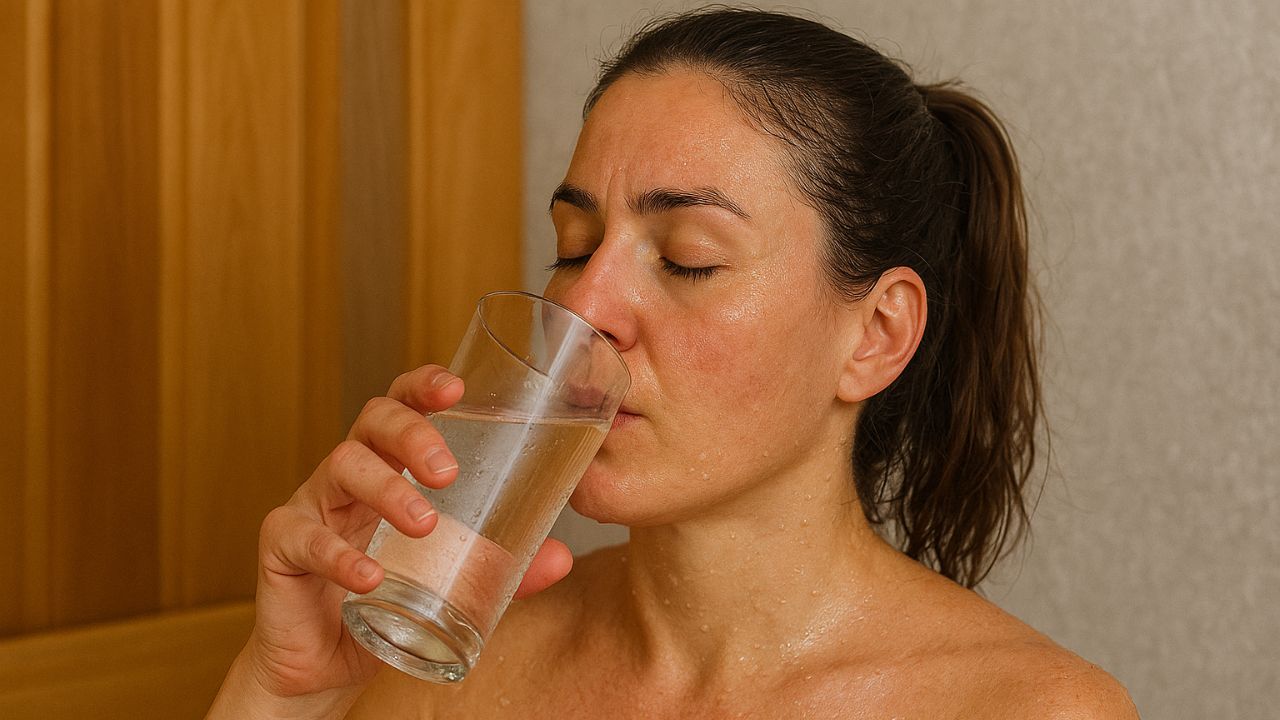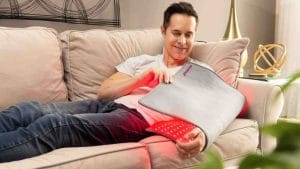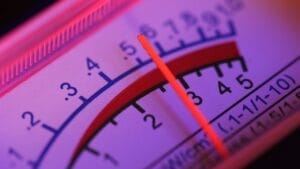This article has been medically reviewed by doctors to ensure it provides accurate, reliable, and up-to-date health information. We only use credible sources to support our content.
Stepping out of a hot sauna can be an invigorating experience – your heart is pumping, your skin is flushed, and sweat is dripping as your body works to cool itself. At this moment, what you do next is crucial for helping your body recover and maximizing the benefits of the sauna session. Sauna bathing causes you to sweat out a lot of fluid and raises your core body temperature. Without proper aftercare, you might feel dizzy, dehydrated, or fatigued.
Post-sauna aftercare is all about cooling down safely and rehydrating effectively. In other words, you want to help your body return to normal conditions in a gentle way and replace the water and electrolytes you lost through sweat. This guide will walk you through simple steps to cool down and rehydrate after a sauna, so you can feel refreshed and rejuvenated rather than wiped out.
Quick Key Takeaways: What to Do After a Sauna
- Cool down slowly. Avoid cold shocks right away—rest for 5–15 minutes in a mild environment to let your body return to normal gradually.
- Rehydrate right away. You lose a lot of water through sweat. Start drinking cool or room-temperature water slowly right after exiting.
- Replace electrolytes. After long sessions, consider adding an electrolyte drink, coconut water, or a salty snack to restore balance.
- Take a lukewarm shower. Begin with warm or mildly cool water, then gradually lower the temperature to rinse off sweat and cool your body.
- Eat a light snack. A banana, nuts, or yogurt can help bring your energy back without overwhelming your system.
- Give yourself recovery time. Rest for 15–20 minutes after your shower to allow your heart rate and body temperature to fully normalize.
- Moisturize your skin. Saunas can dry out your skin, so apply lotion or oil once you’re cooled down and dry.
- Pay attention to how you feel. If you feel faint, overly tired, or unwell, sit or lie down, drink fluids, and rest. Listen to your body every time.
Give Yourself Time to Cool Gradually
Resist the temptation to jump straight from the sauna into a cold shower or an air-conditioned room. Your body just underwent intense heat stress – going to the opposite extreme too quickly can shock your system. Instead, step out of the sauna and rest for a few minutes in a cooler (but not frigid) area. Sit down, take some deep breaths, and allow your heart rate to come down slowly. You will notice that you continue to sweat as your body tries to shed the excess heat. This is normal. It takes about 5 to 15 minutes for most people to cool down to near-normal body temperature after a sauna.
During this period, avoid cold drafts or heavy exercise. Just relax and let your circulation adjust. A gradual cooldown helps prevent sudden drops in blood pressure that might cause lightheadedness. Some sauna practitioners recommend wrapping yourself in a towel or robe while you sit, so you don’t cool off too fast. The key is moderation: you want to cool down, but not instantaneously. Think of it like a gentle landing after a flight of heat.
Rehydrate, Rehydrate, Rehydrate
Sweating is essentially your body losing water to stay cool. In a sauna, you can easily lose a pint (0.5 liter) or more of sweat in one session. In fact, an average sauna user might drop 1-2 pounds of water weight due to sweat after 10-20 minutes of heating. This fluid needs to be replaced to avoid dehydration. As soon as you exit the sauna (and once you’ve caught your breath), start rehydrating. Drink water slowly and steadily. Rather than chugging an ice-cold bottle in one go (which can upset your stomach), sip on cool or room-temperature water. Drinking too fast or consuming very cold water might trigger cramps in some cases because your body is still quite warm.
Aim to drink at least one full glass of water right after the sauna, and continue to hydrate over the next hour or two. Plain water is great, but you may also consider an electrolyte drink if you’ve had a long sauna session or if you routinely sauna after workouts. When you sweat, you lose not just water but also electrolytes like sodium and potassium. Replenishing these can help your body recover its balance.
Options include sports drinks, coconut water (which is rich in potassium), or even a pinch of sea salt in your water plus a squeeze of lemon. Avoid alcohol or excessive caffeine immediately after a sauna – these substances can dehydrate you further or strain your cardiovascular system which is already working hard to cool you. Think of rehydration as the first and most important step of aftercare: water is your best friend after sweating.
Learn more: How saunas might help with weight loss
Take a Lukewarm or Cool Shower
Once you’ve started rehydrating and your heart rate is calming down, a shower can be an excellent way to cool your body and cleanse your skin. The best approach is to use lukewarm water at first. Your skin is hot and your blood vessels are dilated from the heat; jumping into an icy shower might feel like a thrill, but it causes those blood vessels to clamp down rapidly, which could strain your circulation. Instead, set the shower to a comfortably warm or mildly cool temperature – something that feels just slightly cooler than your skin. Rinse off the sweat and allow the water to gradually wash away heat from your body.
As you feel your temperature normalizing, you can slowly decrease the shower temperature to cool water if desired. Many sauna enthusiasts enjoy a cool rinse by the end of the shower to close up pores and invigorate themselves. Spend a few minutes in the shower, gently washing off. This not only cools you but also removes any toxins or salts sitting on the skin from the sweating. Avoid very hot showers post-sauna (obviously, you’ve had enough heat) and also avoid very cold plunges unless you are experienced with contrast therapy. After showering, pat your skin dry gently with a towel. You’ll likely feel much fresher and fully transitioned out of “sauna mode” by this point.
Replenish Your Electrolytes and Energy
After a sauna, it’s common to feel a bit drained or even hungry. This makes sense – your body worked hard, your heart rate was elevated, and you burned some calories while sweating (sauna sessions can modestly increase calorie burn due to the energy needed to cool down). It’s a good idea to have a light snack or beverage that provides electrolytes and a bit of sugar to help your body recover. Some great post-sauna choices include: a banana (rich in potassium and easy carbs), a handful of nuts and dried fruit, yogurt or kefir (for fluids and potassium/calcium), or even a sports drink if you prefer drinking your calories.
The goal isn’t to have a heavy meal, but rather to refuel just enough. Listen to your body – if you’re not hungry, plain water or an electrolyte drink might suffice initially. But if you feel a bit shaky or low on energy, some fruit or juice can bring your blood sugar back up gently.
In Finland (the homeland of sauna culture), it’s not unusual for people to enjoy a salty snack like pretzels or a sports beverage after sauna to replace salt lost in sweat. Remember that alcohol is not a good post-sauna choice – it dehydrates you and can make you more lightheaded. Focus on nourishing, hydrating options. By giving your body some fuel, you’ll support the recovery process and avoid the “post-sauna crash” that can happen if you don’t rehydrate and refuel.
Relax and Cool Your Body Fully
Even after a shower and initial hydration, your core temperature might still be slightly elevated. For full recovery, build in a relaxation period of at least 15-20 minutes after your sauna session. Find a comfortable place to sit or lie down at normal room temperature. This is a great time to just chill out (literally and figuratively). Some people like to do gentle stretching at this stage – since your muscles were warmed and then cooled, light stretches can help maintain flexibility and ease any tension. You could also do some deep breathing exercises or meditation, which fits naturally after the calming heat of a sauna.
Ensure you continue to sip fluids during this rest period; don’t guzzle, but keep a water bottle nearby and take frequent small sips. Pay attention to how you feel: your breathing should be back to normal, and any residual sweating should have subsided. If you still feel very hot, you might use a cool damp towel on your forehead or the back of your neck. Avoid any strenuous activity right after sauna – your body needs a bit of time to return to equilibrium.
In sauna traditions, this cooling phase is considered part of the overall therapy, allowing your cardiovascular system to strengthen by adapting from hot to cool. So think of it as an extension of your sauna wellness routine, not wasted time.
Moisturize and Take Care of Your Skin
Sauna heat and heavy sweating can leave your skin feeling dry once you’ve cooled off. All that sweating does cleanse pores, but it also strips away oils. After you’ve showered and mostly cooled down, it’s a perfect opportunity to moisturize your skin. Use a good quality moisturizer or natural oil (like coconut oil, almond oil, or a light lotion) to replenish hydration in your skin.
Apply moisturizer all over, or at least on areas prone to dryness. This helps lock in moisture now that your skin is clean and your pores are more receptive (the heat will have opened them up). Some people notice that regular sauna use significantly improves their skin complexion, especially if they follow up with moisturizing – it can give you that healthy glow.
Additionally, if you did an exfoliation (like scrubbing with a washcloth in the shower), moisturizing becomes even more important to soothe and protect the new skin cells. Taking care of your skin post-sauna will prolong the benefits of the session, leaving you not only feeling good internally but also externally.
Listen to Your Body
Everyone’s response to sauna is a bit different. The steps above are general guidelines, but it’s important to pay attention to your own body’s signals. If at any point after a sauna you feel faint, extremely tired, nauseous, or unwell, make sure to sit or lie down and continue cooling slowly. In rare cases, some people may experience something called “post-sauna hypotension,” where blood pressure drops and causes dizziness. If that happens, elevate your legs, drink water, and rest until you normalize. Generally, following the cooling and rehydration steps will prevent such issues. Also, be mindful of how much sauna is too much for you. If you find you’re consistently exhausted after sauna even with proper aftercare, you might be overdoing the heat or staying in too long. Moderation is key – sauna bathing is meant to be a relaxing, healthful practice, not a test of endurance every time. By taking the right aftercare measures, you ensure that the stress of heat on your body turns into positive adaptation (like improved circulation and relaxation) rather than negative effects.
Conclusion
A sauna session doesn’t end when you step out of the hot room – in many ways, that’s when the recovery phase begins. Cooling down and rehydrating are essential to help your body reap the benefits of the heat exposure. The formula is simple: cool off gradually, drink plenty of fluids (with electrolytes), cleanse and refresh your body, then rest. These steps will prevent dehydration and fatigue, keeping you feeling great after your sauna. By following a post-sauna aftercare routine, you can make the most of each sweat session, turning a good sauna experience into an excellent one for your health and well-being. Enjoy the heat, but respect the cooldown – your body will thank you for it!
Related article: How to prepare for a sauna
References
Hannuksela, M. L., & Ellahham, S. (2001). Benefits and risks of sauna bathing. The American Journal of Medicine, 110(2), 118-126. https://doi.org/10.1016/S0002-9343(00)00671-9
Podstawski, R., Borysławski, K., Clark, C. C. T., Choszcz, D., Finn, K. J., & Gronek, P. (2019). Correlations between repeated use of dry sauna for 4 x 10 minutes, physiological parameters, anthropometric features, and body composition in young sedentary and overweight men: Health implications. BioMed Research International, 2019, 7535140. https://doi.org/10.1155/2019/7535140
Kukkonen-Harjula, K., & Kauppinen, K. (2006). Health effects and risks of sauna bathing. International Journal of Circumpolar Health, 65(3), 195-205. https://doi.org/10.3402/ijch.v65i3.18102




